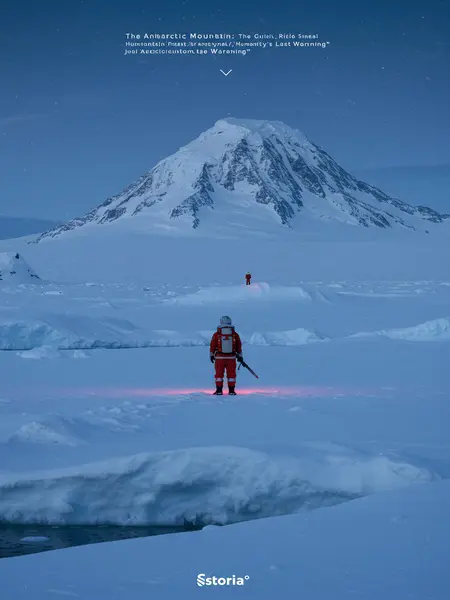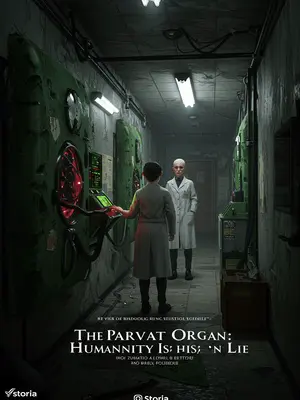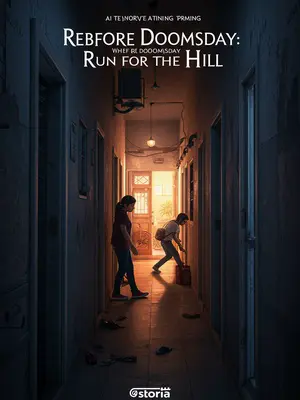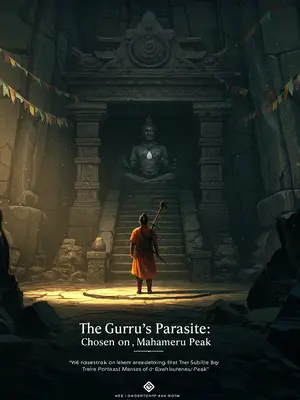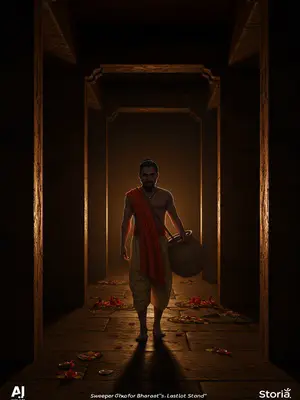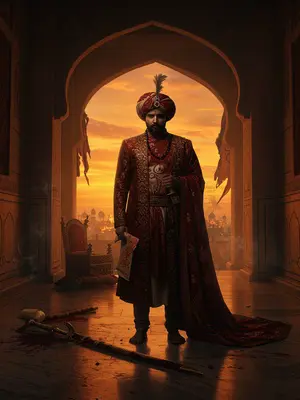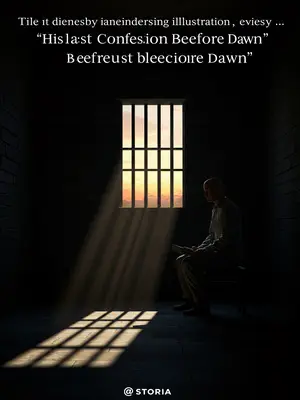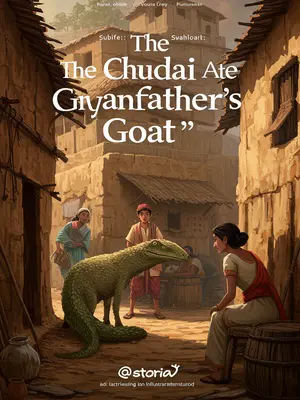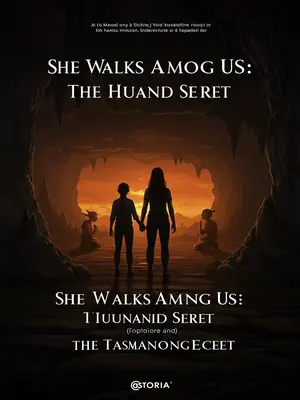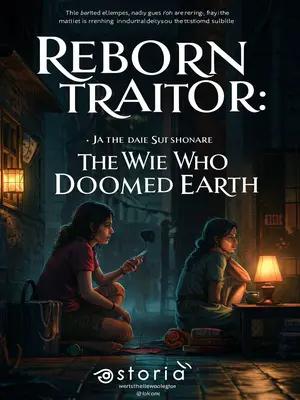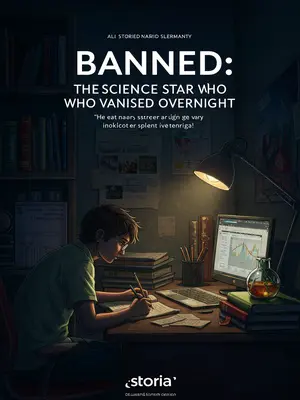Chapter 4: Departure
Seventeen people from our bureau volunteered, but only I and two other researchers made the team:
One was a senior researcher, the other an associate senior—both seasoned experts.
The only reason a rookie like me was chosen was what I wrote in my application:
[No parents above, no wife or children below: alone, unafraid of sacrifice. Twenty years of study, some small achievement: only wish to use my talents, and have no regrets.]
That night, the words echoed in my mind as I folded my few warm clothes into a battered suitcase. My mother’s faded photograph watched over me from the desk, her gentle smile almost a blessing.
The reply from above: [Approved. Wishing you a safe return.]
It felt strangely formal, yet somehow personal, as if the entire bureau was silently wishing for our safety. My friends in the hostel whooped and clapped me on the back, calling me ‘Antarctica ka Rohan’.
An hour later, the three of us arrived at Netaji Subhas Chandra Bose International Airport and boarded a special flight to Delhi.
It was a mad rush—auto-wallahs honking, the familiar cacophony of Kolkata even at midnight. Luggage porters darted around us, and a loud family argued over excess baggage at the counter, their voices rising above the general din. The comforting smell of masala chai drifted from a nearby stall, mingling with the sharper scent of sanitizer. My senior, Dr. Singh, insisted on treating us to chai from a roadside stall before security. “Last cup before we freeze in Antarctica,” he joked, his white beard trembling with laughter.
At Indira Gandhi International Airport, I met experts from every state, including industry leaders I’d only ever read about in journals.
There was a strange energy in the air—people in mufflers and jackets, some holding steel tiffin carriers from home, all gathered for a mission no one had ever dreamed of. Names I’d only seen in academic papers were now standing in front of me, their faces pinched with fatigue and tension.
Together with the security team, we boarded a specially assigned Air India flight and flew to Warrnambool, at Australia’s southern tip.
The stewardess distributed piping hot upma and strong filter coffee, trying her best to smile despite the gravity of our mission. The flight was quiet—no one cracked jokes, no one snored. The only sound was the gentle clink of steel spoons against plastic cups.
Warrnambool is a small city, home to only tens of thousands.
It was my first time in Australia. The city felt oddly empty, as if even the birds had fled. The air smelled different—sharper, colder.
After a short rest at the airport, we boarded a bus to the port.
The road was lined with devastation: trees leaning every which way, many houses cracked or collapsed.
I even saw crazed kangaroos charging into the streets, quickly dealt with by locals.
It was obvious these kangaroos were affected by the infrasound waves generated by the Antarctic earthquake, driving them into the city to attack people.
We stared in shock as a local, wearing a battered Akubra hat, wrestled a frenzied kangaroo to the ground, muttering curses. One of our own, Dr. Parveen, snapped photos, muttering, “No one will believe this back home.” The air was thick with tension, the distant wail of sirens never truly fading away.
